
For our 2024 rankings, the research team at Nursing Schools Almanac collected data on nearly 3,000 nursing schools and campuses throughout the United States. We evaluated each school on three dimensions:
- The institution’s academic prestige and perceived value
- The breadth and depth of nursing programs offered
- Student success, particularly on the NCLEX licensure examination
We then combined these assessments into an overall score and ranked the schools accordingly. For a detailed description of our assessment methodology and dimension weights, please see here.
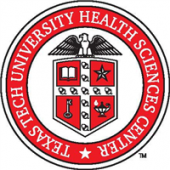
#1: Texas Tech University Health Sciences Center
Texas Tech’s School of Nursing holds the National League for Nursing Center of Excellence designation for enhancing student learning and professional development. The university offers four undergraduate pathways: traditional, second degree, veteran-to-BSN, and a degree completion program for existing registered nurses. The school graduates approximately 350 prelicensure BSN students annually, and they have passed the NCLEX licensure exam at rates as high as 97% in recent years. Graduate offerings include nine MSN specializations, eight post-master’s programs, graduate certificates in global health and rural community health, and a DNP program designed for working professionals.
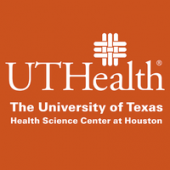
#2: University of Texas Health Science Center at Houston
The University of Texas Health Science Center at Houston (UTHealth) is located in the renowned Texas Medical Center. The School of Nursing offers bachelor of science in nursing (BSN), master of science in nursing (MSN), doctor of philosophy in nursing (PhD), and doctor of nursing practice (DNP) degrees. UTHealth currently enrolls more than 1,000 nursing students, and it confers over 400 undergraduate and graduate nursing degrees annually. BSN students have earned a National Council Licensure Examination (NCLEX-RN) pass rate of 96% for the past decade.
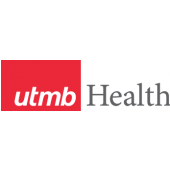
#3: University of Texas Medical Branch at Galveston
The UTMB School of Nursing is frequently ranked among the top twenty-five online graduate nursing programs in the country by U.S. News & World Report. In-person nursing students have access to the university’s new Health Education Center, which features a 77-bed simulated hospital and five floors of cutting-edge simulation facilities. The school’s prelicensure BSN program graduates more than 300 students annually, with a phenomenal 98% first-time NCLEX pass rate over the past four years. UTMB also leads RN-to-BSN, MSN, DNP, and PhD programs. Seven MSN tracks are available including clinical nurse leader, family nurse practitioner, neonatal nurse practitioner, and nurse educator. The university’s online DNP program is designed for working nurses, with eight semesters of study and a manageable load of just two courses per semester.
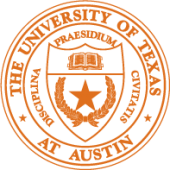
#4: University of Texas at Austin
The UT Austin School of Nursing is consistently ranked among the top 25 in the nation for its graduate nursing programs by U.S. News & World Report. The school also ranks among the top 25 universities in nursing research funding by the National Institutes of Health. UT Austin enrolls approximately 800 students across a wealth of nursing programs, including traditional BSN, ADN-to-BSN, traditional and alternate-entry MSN, traditional and alternate-entry PhD, and DNP options. The school produces approximately 120 prelicensure BSN and 60 prelicensure MSN graduates annually. BSN students have passed the NCLEX licensure exam at a 94% first-try rate over the past decade, while MSN graduates have averaged a 95% rate over the same timeframe.

#5: University of Texas at Arlington
UT Arlington’s College of Nursing and Health Innovation is the largest producer of baccalaureate-educated nurses in the state. The school has approximately 17,000 online and on-campus students, and it holds three simultaneous NLN Center of Excellence designations. Undergraduates can pursue a traditional four-year BSN, a Veterans BSN for former military healthcare specialists, or an RN-to-BSN completion program for existing nurses. UT Arlington graduates over 600 prelicensure BSN students annually, who have achieved a 91% first-time NCLEX pass rate over the past decade. At the graduate level, nurses can pursue a number of MSN specializations including administration, education, and seven distinct nurse practitioner roles. The college also offers DNP and PhD programs.
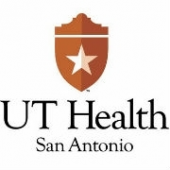
#6: University of Texas Health Science Center at San Antonio
The University of Texas Health Science Center at San Antonio is the only Tier 1 research university in South Texas. The School of Nursing is home to 750 students enrolled in traditional BSN, accelerated BSN (also known as “ABSN”), MSN, DNP, and PhD degree programs. In addition, the school offers post-graduate certificates in specialty areas from FNP to NED, plus a unique alternate-entry MSN option for ADN- or diploma-educated RNs. The School of Nursing produces 250-350 prelicensure BSN graduates annually who have posted an 89% NCLEX first-attempt pass rate over the past decade.

#7: Texas Woman’s University
Texas Woman’s University (TWU) College of Nursing has a primary campus in Denton and satellite locations in Dallas and Houston. The school offers online, on-campus, and hybrid programs across a wide breadth of nursing pathways. Undergraduates may pursue traditional, second-degree, weekend / evening, and RN-to-BSN programs. TWU’s prelicensure BSN students have maintained a stellar 94% NCLEX pass rate over the past decade. Graduate students have two RN-to-MSN pathways (post-ADN and post-baccalaureate) and four choices of MSN degree or certificate (NP, CNL, NED, health systems management). Doctoral offerings include DNP, PhD, and a DNP-to-PhD bridge program. TWU’s Center for Global Nursing Scholarship provides the opportunity to study in places such as Vietnam, Peru, Turkey, and Tanzania.

#8: Baylor University
Baylor University’s Louise Herrington School of Nursing was established in 1909 and later became one of the earliest baccalaureate nursing programs in Texas. Through its belief that nursing is a calling, the school prepares nurses by integrating faith and excellent academics. LHSON offers several baccalaureate pathways including a traditional program, a FastBacc® (one-year accelerated) program, and an online Distance Accelerated BSN. The university graduates between 250 and 300 BSN students annually, with an excellent 95% NCLEX-RN pass rate over the past decade. At the graduate level, Baylor offers an online DNP program with six tracks: executive nurse leadership, family nurse practitioner, neonatal nurse practitioner, nurse midwifery, pediatric nurse practitioner, and the U.S. Army Graduate Program in Anesthesia Nursing (USAGPAN).
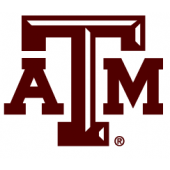
#9: Texas A&M University Health Science Center
The BSN program at Texas A&M University Health Science Center has posted a phenomenal 99% NCLEX exam pass rate over the past decade. The school has graduated hundreds of new nurses over the past decade and maintains a 95% job placement rate within three months of graduation. Texas A&M offers three BSN tracks: a traditional program in Bryan, an accelerated second degree in both Bryan and Round Rock, and an online RN-to-BSN pathway. Graduate students can pursue an online MSN in nursing education or a hybrid MSN for aspiring family nurse practitioners. Clinical locations include St. Joseph Health System and College Station Medical Center, the oldest healthcare facility in Bryan.
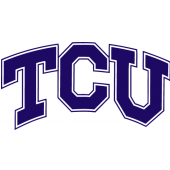
#10: Texas Christian University
TCU’s Harris College of Nursing & Health Sciences offers both a traditional BSN and a 16-month accelerated BSN pathway. The school graduates approximately 200 students annually across the two programs, and collectively they have achieved NCLEX exam pass rates as high as 97% in recent years. TCU’s online MSN program offers two clinical nurse specialist areas of focus, in addition to clinical nurse leader and nurse educator options. The university also leads a post-master’s DNP program for advanced practice registered nurses and nurse administrators, as well as a BSN-to-DNP family nurse practitioner track.
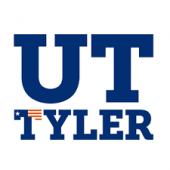
#11: University of Texas at Tyler
UT Tyler’s College of Nursing & Health Sciences offers several undergraduate and graduate nursing programs. BSN students can pursue a traditional four-year, accelerated, or RN-to-BSN pathway. UT Tyler also partners with Jarvis Christian College to offer Jarvis BS candidates a dual BSN degree. Across all of its prelicensure programs, UT Tyler graduates over 300 new nurses annually who have posted an excellent NCLEX pass rate of 93% over the past decade. At the graduate level, the College of Nursing & Health Sciences offers three MSN tracks (NED, administration, FNP), a dual MSN/MBA program, and both PhD and DNP degrees.
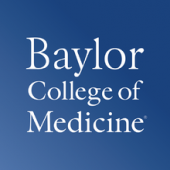
#12: Baylor College of Medicine
Baylor College of Medicine offers a DNP program in nurse anesthesia that has produced hundreds of new nurse anesthetists since its inception. The program requires 36 months of fulltime study to complete, with advanced standing granted to master’s-prepared CRNAs. Graduates are prepared to sit for the national certification exam (NCE) administered by the National Board of Certification and Recertification for Nurse Anesthetists (NBCRNA). Over the past five years, 97% of graduates have passed the NCE on their first attempt, and the remainder passed the exam on their second attempt. In fact, the school’s DNP program was recently ranked the #2 nurse anesthesia program in the country by U.S. News & World Report.

#13: Baptist Health System School of Health Professions
The Baptist Health System School of Health Professions has trained students in healthcare for more than a century. The school offers two pathways to an associate of applied science (AAS) degree in nursing (generic and LVN bridge), plus an RN-to-BSN degree completion program. The school’s NCLEX-RN performance is noteworthy: approximately 200-250 AAS graduates per year have scored a 90% first-time pass rate over the past decade. Baptist Health System’s AAS and BSN programs both hold programmatic accreditation from the Accreditation Commission for Education in Nursing. The school also offers a one-year LVN diploma and boasts the #1 NCLEX-PN performance in Bexar County, with an impressive 96% first-time pass rate over the past decade.
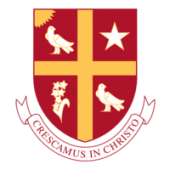
#14: University of St. Thomas
UST’s Carol and Odis Peavy School of Nursing offers a breadth of options at the baccalaureate, master’s, and doctoral degree levels. Traditional undergraduates can pursue a four-year BSN degree grounded in patient-centered nursing. The newly developed curriculum integrates healing and holistic care within the religious, ethical, and intellectual traditions of Catholic higher education. Applicants who already possess a bachelor’s degree in a non-nursing field may complete the BSN on an accelerated 12-month timeline. Students from these two BSN pathways have scored an impressive 89% first-time NCLEX pass rate over the past five years. At the graduate level, MSN candidates can select from concentrations in healthcare and nursing simulation, nursing education, and nursing leadership. The curriculum of UST’s DNP program focuses on the practice of transformational leadership, with both BSN and MSN entry points and an optional concentration for aspiring psychiatric-mental health nurse practitioners.
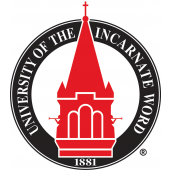
#15: University of the Incarnate Word
UIW’s Ila Faye Miller School of Nursing and Health Professions offers several pathways for aspiring nurses. Undergraduates can enroll in either a traditional BSN program or an accelerated 16-month track for candidates with a non-nursing bachelor’s degree. Across these two options, the university graduates approximately 80-100 BSN students annually. These graduates have scored a 94% first-time NCLEX pass rate over the past decade, including a perfect 100% pass rate in two of the past four years. At the graduate level, UIW offers an MSN degree with a leadership focus and two entry points (traditional, RN-to-MSN), three DNP pathways (FNP certification, PMHNP certification, post-MSN completion), and post-master’s certificates in both of these nurse practitioner specialties.

#16: Abilene Christian University
The ACU School of Nursing prepares aspiring nurses by offering training exercises at the school’s simulation lab, clinical experiences at community hospitals, research assistant opportunities, and medical mission trips around the world. Students are mentored by faculty and practicing nurses who help to hone their technical and critical thinking skills. The school graduated its first class of traditional four-year BSN students in 2015. The graduating class of 2019 scored an impressive 96% pass rate on the NCLEX licensure exam. Abilene Christian University also offers an online DNP program that features integrated practice learning experiences and two focal areas (advanced practice nursing, executive nursing leadership).
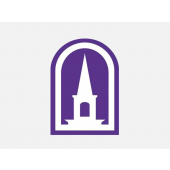
#17: University of Mary Hardin-Baylor
The Scott & White School of Nursing at UMHB offers programs at the baccalaureate, master’s, and doctoral levels. Undergraduates have two options: a traditional four-year BSN and an online RN-to-BSN pathway. The traditional BSN conducts clinical experiences at local hospitals, and it provides numerous opportunities to train at the school’s Clinical Simulation Learning Center. This facility features a simulation hospital, a standardized patient clinic, a skills lab, and a physical diagnosis lab. More than 150 students complete the traditional BSN program each year. They have enjoyed a solid NCLEX pass rate of 87% over the past decade, including a stellar 96% pass rate in 2018 and 2020. Graduate nursing students at UMHB have several options. The MSN program offers nurse educator, family nurse practitioner, and adult-gerontology acute care nurse practitioner tracks. The university also offers two doctoral nursing degrees: a post-master’s DNP and a doctor of education (EdD) focused on leadership in nursing education.

#18: University of Houston
The University of Houston is an institutional member of the Texas Medical Center. The College of Nursing offers two BSN tracks (second degree, RN-to-BSN) and three MSN specializations (administration, education, family nurse practitioner). The second degree BSN program is offered at the university’s Sugar Land campus. Graduates of this accelerated 12-month program have posted phenomenal NCLEX pass rates over the past several years, including a perfect 100% pass rate four of the past six years. The RN-to-BSN and MSN programs are offered at both the Sugar Land and Houston main campuses, with select tracks available online as well. Each graduating class of the FNP track has achieved a 100% pass rate on the national certification exam.
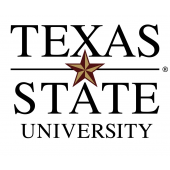
#19: Texas State University
St. David’s School of Nursing at Texas State University grants BSN and MSN degrees. Since its inaugural graduating class in 2012, the BSN program has educated hundreds of new nurses with an outstanding first-time NCLEX pass rate of 99%. The school’s MSN graduates are prepared to sit for the FNP certification exam proctored by either the American Nurses Credentialing Center or the American Academy of Nurse Practitioners. Texas State students gain valuable training at the school’s five interactive simulation laboratories, and they engage in clinical experiences at area hospitals and healthcare facilities.
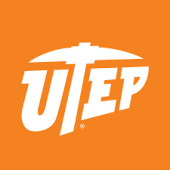
#20: University of Texas at El Paso
UTEP Nursing has developed a wide variety of degree programs during its forty-year history. Undergraduates must first complete pre-nursing courses before progressing into either the traditional or fast-track BSN program. The school graduates 200-300 BSN students annually who have passed the NCLEX exam at rates as high as 97.6% in recent years. Existing nurses may enroll in the university’s 100% online RN-to-BSN program or one of several graduate pathways. UTEP offers three MSN majors (nursing education, nurse practitioner, nursing systems management), an MSN-to-DNP program, and a PhD in Interdisciplinary Health Sciences.

#21: Texas A&M University - Corpus Christi
TAMUCC’s College of Nursing & Health Sciences launched the first accredited RN-to-BSN program in an upper-level university during the early 1970s, and the first accredited online BSN program in 2003. Today, the school offers numerous BSN pathways including traditional, accelerated, two online options, and an RN-to-BSN completion program. The prelicensure tracks graduate 200-250 students annually who have averaged an 87% NCLEX pass rate over the past decade, including a phenomenal 97% pass rate in 2018. TAMUCC is also home to the fourth-largest MSN program in Texas, which has ranked among U.S. News & World Report’s top ten online MSN programs multiple times. Master’s degree candidates can specialize in family nurse practitioner, nursing education, or leadership. The university also began a post-master’s DNP program in the fall of 2016.
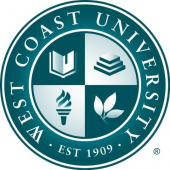
#22: West Coast University
In 2008, West Coast University became the first privately held university in California approved to offer a BSN degree. The school now offers nursing and allied health programs across five cities including Dallas, Los Angeles, Miami, Ontario, and Orange County. WCU Dallas is dedicated entirely to higher education for nurses. It offers two campus-based programs: a traditional BSN and an LVN-to-BSN bridge program. Students can join global study trips to a range of international locations such as England, Belize, Costa Rica, Panama, and Moldova. WCU also offers a full complement of online degrees, including RN-to-BSN / RN-to-MSN completion programs and MSN tracks in family nurse practitioner, nursing education, and nursing informatics.
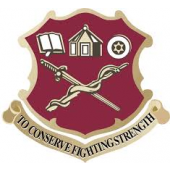
#23: United States Army Medical Center of Excellence
The United States Army Medical Center of Excellence’s Academy of Health Sciences is the largest medical education and training campus in the world, producing nearly 35,000 medical professionals every year. Instruction covers 315 distinct programs that span the entire range of army healthcare functions including medical, dental, nursing, veterinary, and medical specialist. Nursing programs run the gamut from an LVN certificate to the U.S. Army Graduate Program in Anesthesia Nursing. The LVN program produces approximately 300-400 graduates annually. Upon completion of the program, graduates are eligible to sit for the NCLEX-PN licensure exam. Over the past decade, LVN graduates have achieved an exceptional 93% first-time pass rate.

#24: Concordia University Texas
Concordia University Texas seeks to develop Christian leaders across a broad range of more than twenty academic fields. The College of Nursing offers several pathways at both the undergraduate level (traditional BSN, accelerated BSN, online RN-to-BSN) and graduate level (traditional MSN, RN-to-MSN, RN+-to-MSN). Concordia’s undergraduates have a phenomenal track record on the NCLEX licensure examination, scoring a 98% first-time pass rate over the past six years. The MSN program has leadership, education, and informatics tracks, all of which may be completed entirely online.
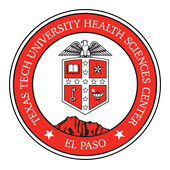
#25: Texas Tech University Health Sciences Center El Paso
Texas Tech University Health Sciences Center El Paso is home to the Gayle Greve Hunt School of Nursing. The school offers two undergraduate pathways (accelerated BSN, RN-to-BSN) and an MSN degree. The accelerated BSN can be completed in four consecutive semesters, or just 16 months of fulltime study. Courses are taught in a combination of classroom and online settings. Since 2015, accelerated BSN students have achieved a solid 88% first-time pass rate on the NCLEX-RN licensure examination. TTUHSC El Paso’s RN-to-BSN program is conducted entirely through web-based instruction, while its MSN program is delivered in a hybrid format designed to be completed in seven consecutive semesters.

#26: Hallmark University
Hallmark University is a private nonprofit institution that specializes in aeronautics, business, healthcare, and technology education. The School of Nursing features simulation labs and facilities that look and feel just like modern healthcare environments. Students practice their medical techniques by applying knowledge learned in the classroom on life-like models. The school offers two pathways to a BSN degree (prelicensure, RN-to-BSN completion) as well as a master of science in nursing education. The prelicensure BSN program just enrolled its first cohort in 2018. It follows an accelerated curriculum that enables students to complete their baccalaureate education in just 32 months of year-round study, with no prerequisites required.

#27: Covenant School of Nursing
Covenant School of Nursing (CSON) is the oldest nursing school in the South Plains. A member of Covenant Health, the region’s largest health system, the school has produced more than 4,500 nurse graduates. CSON awards a nursing diploma and prepares 110-140 students annually for the NCLEX-RN national licensure examination. These students have passed the exam at rates as high as 99% in recent years. CSON graduates have the option to enter the BSN completion program at nearby Lubbock Christian University, which requires just two additional semesters to finish.

#28: Houston Baptist University
HBU’s School of Nursing and Allied Health prepares the highest-quality RN clinicians and leaders through its BSN program. The program offers three pathways: a traditional plan of study, an Honors College curriculum that students may complete in just three years, and a fully online RN-to-BSN program. HBU students gain hundreds of hours of hands-on experience in renowned clinical settings, an on-campus simulation lab, and Bradshaw Fitness Center. The school’s prelicensure graduates, typically 50-80 each spring, have scored a cumulative 87% NCLEX pass rate over the past decade.

#29: Texas Wesleyan University
Texas Wesleyan University’s School of Health Professions conducts the largest nurse anesthesia program in the country, with twenty primary clinical sites across nine states. The school’s nurse anesthesia graduates have achieved a 91% first-time pass rate on the NBCRNA certification exam over the past five years, with a stellar 99.6% pass rate within six months of graduation. In addition to the entry-level DNAP pathway for baccalaureate-prepared nurses, the university offers a 100% online completion program for CRNAs. Texas Wesleyan also recently launched a program for aspiring family nurse practitioners, with a unique curriculum that emphasizes both holistic patient care and self-care to prevent burnout and stress. FNP candidates can pursue an MSN degree, a DNP degree, or a post-master’s certificate.

#30: University of Texas Rio Grande Valley
The UT System Board of Regents recently formed UT Rio Grande Valley by consolidating the system’s Pan American (Edinburg) and Brownsville campuses. UTRGV’s nursing department maintains deep offerings in both locations, including a prelicensure BSN, an RN-to-BSN completion program, and three MSN tracks (nursing administration, nursing education, FNP). The school also offers a graduate certificate for aspiring psychiatric-mental health nurse practitioners. UTRGV graduates 100-200 prelicensure BSN students each year, who have achieved a strong pass rate of 87% on the NCLEX licensure exam over the past ten years.
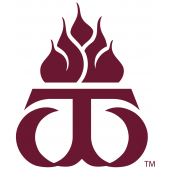
#31: West Texas A&M University
The Department of Nursing at West Texas A&M University is a student-centered learning community that provides valuable hands-on experience through its on-campus Nursing Health & Wellness Clinic. The school offers multiple pathways at both the undergraduate and graduate levels. Undergraduates can pursue a traditional prelicensure BSN degree or an online RN-to-BSN completion program. Prelicensure BSN graduates have a stellar 96% first-time NCLEX pass rate over the past decade. Graduate students can choose from two MSN specializations: comprehensive nursing (offered online) and family nurse practitioner (delivered in a hybrid format). A post-master’s FNP certificate is also available.
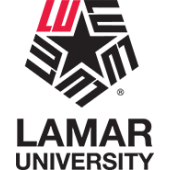
#32: Lamar University
The Joanne Gay Dishman School of Nursing offers several pathways to a BSN or MSN degree. The traditional BSN is a four-year campus-based program, while the RN-to-BSN bridge program is offered online. Lamar University graduates roughly 100 traditional BSN students each year, with an impressive 92% NCLEX pass rate over the past decade. The online MSN program has twice been ranked in the top twenty nationally by U.S. News & World Report. The MSN curriculum offers concentration options in nursing administration and nursing education, an RN-to-MSN bridge program, and a joint MSN/MBA degree option.
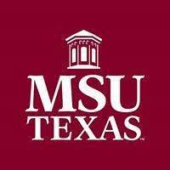
#33: Midwestern State University
The Wilson School of Nursing is part of the Robert D. & Carol Gunn College of Health Sciences & Human Services. The school offers several undergraduate degree pathways including a traditional prelicensure BSN, a 15-month second degree BSN known as ACCEL-RN, and an online RN-to-BSN program with three annual start dates. Each year, MSU graduates 125-150 students combined from the traditional and accelerated tracks. These students have averaged an 82% first-time NCLEX pass rate over the past decade. The university also offers an MSN degree with tracks for aspiring family nurse practitioners, nurse educators, and psychiatric-mental health nurse practitioners. Each specialization option is also available as a post-graduate certificate.
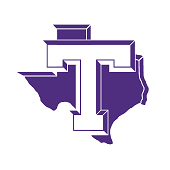
#34: Tarleton State University
Tarleton State University is a member of the Texas A&M University System. The school’s Department of Nursing has served students since 1976. TSU undergraduates have several options for pursuing a BSN degree, including a traditional four-year program and two alternate entry pathways (LVN-to-BSN and RN-to-BSN). The BSN program has more than doubled in size since 2012 without sacrificing quality: students have averaged an 85% first-time NCLEX pass rate over the past decade. The university’s MSN program also supports multiple entry points, including a traditional pathway for BSN-educated nurses and an RN-to-MSN pathway for ADN- or diploma-educated nurses. All nursing programs are available at Tarleton’s main campus, and the LVN-to-BSN pathway is also available at the school’s Waco campus.
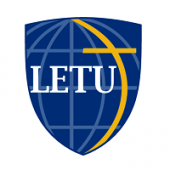
#35: LeTourneau University
The School of Nursing at LeTourneau University (LETU) offers a prelicensure BSN program that takes four years to complete. The curriculum features small class sizes, a diverse faculty, and extensive clinical experiences with more than twenty agency partners in the East Texas area. Graduates of the LETU BSN program are prepared to seek positions in acute care hospitals, primary care clinics, nursing homes, rehabilitation facilities, faith-based organizations, community agencies, and schools. The university’s BSN graduates have achieved a perfect 100% pass rate on the NCLEX-RN licensure exam four out of the five years since the program’s recent launch. LETU also offers an online RN-to-BSN program that features year-round, seven-week courses deployed in a cohort model and complemented with local practice experiences.
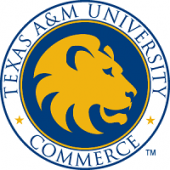
#36: Texas A&M University - Commerce
A&M-Commerce is the second-largest institution in the prestigious Texas A&M University System, with satellite campuses in six Texas cities and a robust online presence. The university offers both a traditional prelicensure BSN and an RN-to-BSN completion pathway. The traditional BSN program is select, with just 30-50 students in each graduating cohort. These students have achieved a strong 93% first-time NCLEX pass rate since the program’s recent launch. The Nursing Department also offers an MSN curriculum with family nurse practitioner emphasis that students can complete in two years fulltime or three years part-time. The program’s hybrid delivery model combines online courses with web-enhanced on-campus modules.
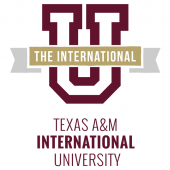
#37: Texas A&M International University
Texas A&M International University (TAMIU) is home to the College of Nursing and Health Sciences and the Dr. F. M. Canseco School of Nursing. The school offers both traditional and degree completion pathways to a BSN degree. Graduate students can pursue an MSN with either a family nurse practitioner or nursing administration focus. The FNP curriculum emphasizes topics like health assessment, pharmacology, healthcare policy, and social justice, while the nursing administration curriculum covers issues like healthcare informatics, organizational behavior, and nursing leadership. All of TAMIU’s nursing programs are conducted on campus only. BSN graduates have scored an outstanding 93-97% NCLEX pass rate for seven consecutive years, while FNP graduates have achieved a perfect 100% pass rate on the national certification exam for four consecutive years.
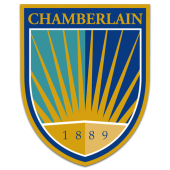
#38: Chamberlain University
Chamberlain University offers a unique three-year BSN program at all four of its Texas campuses. The curriculum is designed so that students can earn their degrees – and start their careers – more quickly than at a traditional four-year school. There are no waiting lists, and all Chamberlain students receive hands-on experience in the university’s state-of-the-art SIMCARE Center. This nursing skills laboratory challenges students to react in realtime to critical patient scenarios including childbirth, seizure, and cardiac arrest. Graduates from the Houston campus have achieved an 81% first-time NCLEX pass rate since the BSN program’s launch roughly a decade ago. Students from Irving and Pearland have also performed impressively, scoring 86% and 92% NCLEX pass rates (respectively) since inception. In August 2019, Chamberlain University opened a new campus in San Antonio, marking the school’s fourth site in Texas and 22nd campus nationwide.

#39: Western Governors University Texas
WGU Texas offers a wide breadth of nursing programs. Traditionally an online university, Western Governors University recently launched a prelicensure BSN program in Texas with local clinical experiences that feature high-fidelity simulations, agency-based hospital rotations, and personalized guidance from an experienced clinical coach. Existing nurses can pursue several bridge programs (e.g., RN-to-BSN/MSN) and two MSN specializations (education, leadership) entirely online. The College of Health Professions also leads several online degree programs in adjacent healthcare fields, including a BS in health informatics, an MS in integrated healthcare management, and an MBA in healthcare management.
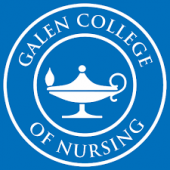
#40: Galen College of Nursing
With eight campuses and an online division, Galen College of Nursing is one of the largest private nursing schools in the United States. The San Antonio campus offers an LVN diploma, an LVN-to-ADN bridge program, a three-year BSN degree, and an online RN-to-BSN completion option. Students have access to laboratories with high-tech patient-simulation mannequins, clinical experiences in a variety of real-world healthcare settings, and classroom technology that enhances learning. The San Antonio LVN and ADN programs each graduate approximately 300-400 students annually. Since 2017, LVN students have scored an impressive 95% first-time pass rate on the NCLEX-PN licensure exam, while their ADN counterparts have averaged a 91% first-time pass rate on the NCLEX-RN licensure exam.
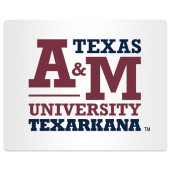
#41: Texas A&M University - Texarkana
The Department of Nursing is an integral part of TAMUT’s College of Arts, Sciences and Education. The department conducts a traditional BSN program, an RN-to-BSN completion track, and an MSN degree with specializations in nursing administration and psychiatric-mental health nurse practitioner. The RN-to-BSN curriculum is delivered in eight-week blocks rather than across the semester, allowing working students to better focus their efforts and manage their time. The traditional BSN program launched during the summer of 2017. Coursework is conducted in the Building for Academic and Student Services, which houses an eight-bed simulation hospital and multiple skills labs. The first three graduating classes of the traditional BSN program have each scored a perfect 100% first-time pass rate on the NCLEX-RN licensure examination.
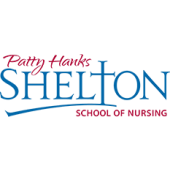
#42: Patty Hanks Shelton School of Nursing
Patty Hanks Shelton School of Nursing (PHSSN) is a consortium of Hardin-Simmons University and McMurry University, making it the only intercollegiate nursing program in the nation that serves two private universities. PHSSN offers several nursing degree pathways including a traditional BSN, an RN-to-BSN completion program, and an MSN with functional tracks for education and family nurse practitioner. The school also offers a highly regarded CNA program, available for enrollment to the broader Abilene community. PHSSN’s prelicensure BSN students have passed the NCLEX-RN exam at a 94% rate over the past four years. It is also common for all CNA graduates to pass the state certification exam.

#43: Sam Houston State University
The School of Nursing at Sam Houston State University has several undergraduate options. A pre-nursing program provides foundational coursework in anatomy, physiology, microbiology, chemistry, algebra, statistics, nutrition, and psychology. SHSU offers two prelicensure BSN pathways: a traditional program for students with no nursing education or experience, and an LVN-to-BSN bridge for practicing LVNs who want to advance into the RN role. The university graduates 60-90 students annually across these two programs, with a solid 93% pass rate on the NCLEX licensure exam since launch. Finally, SHSU offers a fully online RN-to-BSN program designed for working nurses who want to complete their baccalaureate education.

#44: Lubbock Christian University
The Department of Nursing at Lubbock Christian University offers a pre-nursing program, an RN-to-BSN bridge program, an MSN degree with two specialization options (education / leadership and family nurse practitioner), and a post-master’s FNP certificate. The pre-nursing program allows students to complete the curricular requirements for entry to Covenant School of Nursing, an LCU partner school. The RN-to-BSN pathway is for working nurses who wish to complete their baccalaureate education while continuing their employment. The FNP specialization uses both traditional and hybrid delivery models, with a substantial amount of time in lectures, labs, and clinical experiences. The education / leadership specialization uses a short-course format, supplementing in-person meetings of three to four days per semester with online instruction.

#45: Angelo State University
The Angelo State University Department of Nursing welcomes students attending college for the first time, those who already have a bachelor’s degree in another field, and practicing nurses who seek more leadership responsibilities. The university’s undergraduate curriculum offers a generic pathway to a bachelor of science degree in nursing. Students have access to the department’s high-fidelity simulation laboratory, which allows them to learn and practice new nursing techniques on life-like mannequins in a real-world setting. The BSN program graduates 60-70 students annually, who have averaged a 91% first-time NCLEX pass rate since the program’s launch. Graduate students can pursue either an MSN degree or a post-master’s certificate, both offered online and each with family nurse practitioner and nurse educator specializations.

#46: Texas Lutheran University
Texas Lutheran University offers several CCNE-accredited options for prelicensure students seeking entry into the registered nursing profession. At the undergraduate level, the university conducts both a traditional BSN program and an accelerated second degree track. Students enjoy an average class size of 30 students and clinical groups of just six to ten participants, ensuring personalized instruction and hands-on practice. Across the two pathways, BSN graduates have achieved a 93% first-time NCLEX pass rate since the program’s inception. In addition, TLU recently launched a 75-credit direct-entry MSN program after receiving official approval from the Texas Board of Nursing in 2021. The curriculum features 990 hours of hands-on training, including clinical experience in behavioral health, emergency room nursing, geriatrics, medical-surgical acute care, obstetrics / gynecology, pediatrics, and surgery. Altogether, more than 200 students are currently enrolled across Texas Lutheran University’s nursing programs.
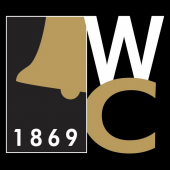
#47: Weatherford College
Established in March 1869, Weatherford College is the oldest continuing community college in the southwestern United States. The college offers a vocational nursing certificate, two pathways to an associate of applied science (AAS) degree in nursing, and an online RN-to-BSN degree completion program. The LVN certificate prepares students for entry-level positions in clinics, doctor’s offices, and hospitals. Approximately 40-60 students graduate from the LVN program each year, with a stellar 93% first-time NCLEX-PN pass rate over the past decade. The AAS program prepares students for more advanced positions in a range of healthcare environments. Weatherford College offers both a traditional four-semester track and an LVN-to-RN transition track. Across the two tracks, the college graduates approximately 150 students annually, with a strong 90% first-time NCLEX-RN pass rate over the past decade. The RN-to-BSN program provides a 12-month pathway for registered nurses with an associate degree or diploma to earn a baccalaureate degree. The curriculum is delivered 100% online; courses that require clinical components are completed through class and preceptor projects.

#48: Aspen University
Aspen University recently launched a prelicensure BSN program in Austin that includes skills labs, clinical simulations, seminars, and community-based clinical experiences within the largest nonprofit healthcare system in Texas. Clinical rotations are held at seven of the system’s largest hospitals including ambulatory sites, clinics, and acute care settings. The BSN curriculum is offered in a hybrid format, with 83 of 120 credits completed fully online. Students can expect to finish the program in just 36 months of fulltime study. Graduates are prepared to sit for the NCLEX-RN licensure examination and, upon successful completion, to pursue employment in hospitals, clinics, and physician’s offices. Aspen University’s BSN program is accredited by the Commission on Collegiate Nursing Education.

#49: University of Houston - Clear Lake
The University of Houston - Clear Lake enrolls 9,000 students annually in more than ninety degree programs across four colleges. The university’s nursing program is led by the College of Human Sciences and Humanities. This RN-to-BSN completion program is delivered in a blended format with both face-to-face and online components. Students may enroll in either the fulltime, three-quarters, or half-time track, allowing them to tailor the program’s pace for their needs as working professionals. Fulltime students can complete the program in just two semesters, while part-time students may take as many as six semesters. The university’s new nursing simulation and skills lab provides valuable hands-on training that prepares students to deliver safe and effective care.

#50: Wayland Baptist University
The Wayland Baptist University School of Nursing offers a traditional BSN program, an LVN-to-BSN bridge, and an online MSN degree. The traditional BSN requires seven terms (or two years) of study after completion of the WBU general education core, with both November and May start dates. The LVN-to-BSN pathway is the only such program in San Antonio. Students can earn up to 11 hours of advanced placement credit for prior nursing education, enabling them to complete the degree in just six terms. The Wayland Baptist MSN combines a primary focus on curriculum development, teaching strategies, and adult learning with a secondary focus on business management.

#51: Prairie View A&M University
Located in the Texas Medical Center, the College of Nursing at Prairie View A&M University (PVAMU) has programs at all degree levels. Undergraduates can pursue a bachelor’s degree through three different pathways: a traditional BSN, an LVN-to-BSN bridge, and an RN-to-BSN completion program. Approximately 120-160 students complete the prelicensure BSN pathways each year, and they have achieved a solid 86% NCLEX pass rate over the past decade. Graduate programs include an MSN degree with three specializations (family nurse practitioner, nurse administration, nurse education) and a post-master’s DNP curriculum. PVAMU’s nursing programs are noted for their advanced technology, smart classrooms, transformative laboratories, and extensive clinical partnerships.

#52: University of Houston - Victoria
Initially chartered as an upper-division and graduate school, the University of Houston - Victoria (UHV) expanded in the fall of 2010 to admit freshmen and sophomores. The university now offers seventy bachelor’s and master’s degree programs. UHV is subdivided into three academic schools, with its nursing program led by the School of Education, Health Professions and Human Development. The RN-to-BSN curriculum is designed for ADN- or diploma-educated nurses who hold an active, unencumbered license. The program builds on its students’ existing knowledge and skills, preparing them to meet the challenges of a dynamic and complex healthcare environment. Students are also prepared for graduate nursing study.

#53: Stephen F. Austin State University
Founded in 1923 as a teachers’ college, Stephen F. Austin State University now offers more than 120 areas of study through six colleges and one independent school. The DeWitt School of Nursing is part of the university’s College of Sciences & Mathematics. The school offers two BSN pathways (traditional prelicensure, RN-to-BSN completion) and an MSN degree for aspiring family nurse practitioners. The MSN program requires just three campus visits, and the RN-to-BSN program requires just one campus visit; all other coursework is conducted online. Traditional BSN students will learn in the Ed and Gwen Cole Simulation Lab, which includes distinct areas for medical-surgical care, labor and delivery, nursery and neonatal care, health assessment, and emergency care. A variety of low-, medium-, and high-fidelity mannequins are used to simulate any patient condition, including childbirth. The traditional BSN program typically graduates 100-130 students annually. Over the past decade, these graduates have achieved an excellent 93% first-time pass rate on the NCLEX-RN licensure examination.
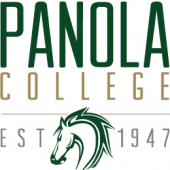
#54: Panola College
Panola College has grown from 100 students at the first registration in 1948 to more than 2,600 students today. The Health Sciences Department offers a vocational nursing certificate and two pathways to an associate degree in nursing (traditional, LVN-to-RN). The LVN-to-RN bridge program is conducted in a convenient hybrid format that features online classes, one campus lab day per week, and clinical experiences during evenings and weekends. Approximately 30-50 students graduate annually from the LVN certificate program, with a solid 85% NCLEX-PN pass rate over the past decade. The ADN program graduates 30-75 students annually across both tracks, with a strong 89% NCLEX-RN pass rate over the past decade.
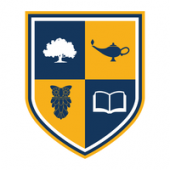
#55: Rio Grande Valley College
For nearly a decade, Rio Grande Valley College has offered a convenient and flexible vocational nursing certificate program. The LVN curriculum provides multiple start dates annually, with both day and evening class options. Students prepare to assume entry-level healthcare positions under the direction of a registered nurse, nurse practitioner, physician, or other healthcare provider. RGV College graduates approximately 100 to 150 vocational nursing candidates each year. These students have scored a 93% first-time pass rate on the NCLEX-PN licensure examination over the past decade. In January 2019, RGV College launched the first cohort of thirty students in its new LVN-to-RN bridge program. This track prepares the LVN for licensure as a registered nurse with an accelerated 45-week curriculum. Graduates will receive an associate degree in nursing and sit for the NCLEX-RN licensure examination.
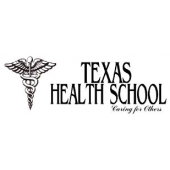
#56: Texas Health School
Texas Health School is accredited by the Council on Occupational Education and approved by the Texas Board of Nursing. The school offers both nurse aide and vocational nursing pathways. The CNA program is 100 hours in length, including 60 hours of coursework and 40 hours of clinical instruction in simulation labs and long-term care facilities. Graduates may register to take the Nurse Aide Competency Evaluation for state certification. The LVN program has both day and evening options. After the first semester, students can take the state nurse aide exam. After successful completion of the entire program, students are prepared to sit for the NCLEX-PN licensure examination. LVN graduates from Texas Health School have averaged an impressive 92% first-time NCLEX pass rate since the program’s recent launch.
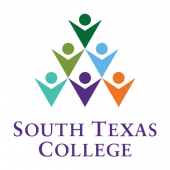
#57: South Texas College
STC’s Division of Nursing and Allied Health offers an ADN program with three entry points: a traditional two-year pathway for non-nurses, a three-semester pathway for EMT paramedics, and a 12-month pathway for existing LVNs. STC also offers a three-semester LVN certificate program that provides classroom instruction and clinical practice in the nursing care of four populations: adults, mothers / newborns, children, and the elderly. The college graduates 70-120 new LVNs and 150-250 new RNs annually. Students in both programs have exhibited strong licensure exam pass rates. Over the past decade, LVN students have achieved an 86% NCLEX-PN pass rate, while their ADN counterparts have achieved an 86% NCLEX-RN pass rate.

#58: Texas A&M University - Central Texas
Texas A&M University - Central Texas has streamlined its RN-to-BSN program to avoid duplication of courses and content previously completed by students with an associate degree in nursing. The flexible, 100% online program covers key subject areas like health assessment, pathophysiology, community health nursing, gerontology, informatics, and nursing research in evidence-based practice. Graduates of the program are prepared to seek positions as case manager, hospice care provider, nurse educator, nursing home director, head nurse, and other advanced-level positions.

#59: East Texas Baptist University
East Texas Baptist University offers both a traditional BSN program and an RN-to-BSN bridge. The traditional BSN program is a four-year curriculum. Two years of basic science and liberal arts courses are followed by two years of nursing courses, including Integrated Nursing Practice, Nutrition, and Pharmacology. The program is select, with only one to two dozen students per graduating cohort. ETBU’s traditional BSN students have posted a strong 93% NCLEX pass rate over the past decade, including a perfect 100% pass rate five of the past six years. The university’s online RN-to-BSN program is designed for graduates of associate degree programs who hold an unencumbered Texas RN license. The streamlined curriculum allows students to earn the BSN degree within 12 to 24 months while continuing their employment.
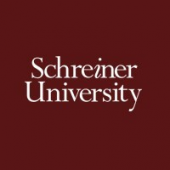
#60: Schreiner University
Schreiner University’s main campus is situated in the Texas Hill Country, with additional first-year campuses in Mission, Brownsville, and El Paso. The school offers three nursing pathways: an LVN certificate, a traditional BSN degree, and an RN-to-BSN bridge. The LVN program takes just one year to complete fulltime. The past four graduating classes have averaged a 91% first-time pass rate on the NCLEX-PN licensure examination. The traditional BSN is a four-year program requiring 120 credit hours of study. These students also perform well on their licensure exams, with an impressive 98% NCLEX-RN pass rate over the past three years. The RN-to-BSN degree completion program is offered fully online and requires just 12 months to complete.

#61: University of Houston - Downtown
The University of Houston - Downtown (UHD) is one of four distinct universities in the University of Houston System. The UHD College of Sciences and Technology offers a BSN program for students who already hold an associate degree in nursing and an active, unencumbered RN license. The RN-to-BSN curriculum focuses on the management and leadership skills needed to advance into senior healthcare positions. The curriculum also lays the groundwork for future graduate study in advanced nursing practice. Students can expect to complete the program in one to two years of study.

#62: Southwestern Adventist University
Southwestern Adventist University has a Nursing Department renowned for its small class sizes and personalized mentoring. The school’s BSN program offers two prelicensure pathways: a traditional four-year curriculum and an accelerated five-semester LVN-to-BSN bridge. Over the past decade, students in these two pathways have scored an 86% first-time pass rate on the NCLEX-RN licensure exam, including an impressive 90% pass rate since 2016. Southwestern also offers a postlicensure RN-to-BSN pathway that qualified nurses may complete in just one year of full-time study. The Nursing Department recently received a grant from the Ardmore Institute of Health to expand its health and lifestyle education efforts within the local community.
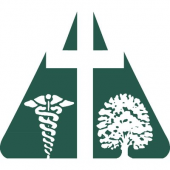
#63: Valley Baptist Medical Center School of Vocational Nursing
Valley Baptist Medical Center has a proud tradition of preparing well-qualified LVNs for the workforce. The hospital’s School of Vocational Nursing launches a new class of approximately 40 individuals each January. Over the ensuing twelve months, students complete a rigorous curriculum that covers three levels of coursework, including approximately 600 lecture hours and 70 lab hours. They also receive more than 800 hours of clinical experience at VBMC Harlingen and surrounding facilities. The administration has worked hard to keep the program affordable, with tuition and fees currently totaling just $11,000. VBMC graduates have posted an exceptional 92% first-time NCLEX pass rate over the past decade, well above the state and national averages.

#64: Southwest University at El Paso
Southwest University at El Paso offers two distinct nursing programs: an associate of applied science (AAS) degree in preparation for initial licensure, and an RN-to-BSN completion track for registered nurses. The AAS program requires 98 weeks of fulltime study to complete. The critical concepts of health promotion, disease prevention, and disease management are incorporated into each nursing course. All required resources – including books, scrubs, and an iPad – are provided. Graduates are prepared to sit for the NCLEX-RN licensure examination. Upon successful completion, they may bridge directly into Southwest University’s BSN program. The RN-to-BSN curriculum is delivered online to accommodate working professionals. The program can be completed in as little as 14 months, with many transfer credits accepted. Southwest University’s AAS program holds initial approval from the Texas Board of Nursing, and its BSN program is accredited by the Commission on Collegiate Nursing Education.
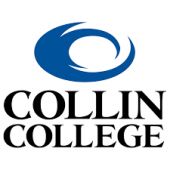
#65: Collin College
The Collin College Nursing Department offers three ADN pathways for aspiring nurses: a traditional program, an LVN-to-RN bridge, and a medic / paramedic fast-track program. The traditional program requires four semesters of study, while the LVN and medic advanced placement pathways may be completed in just three semesters. Coursework includes psychology, growth and development, professional nursing concepts, and healthcare concepts. Across all pathways, Collin College graduates 100-150 ADN students annually. These individuals have achieved an excellent 90% pass rate on the NCLEX-RN licensure exam over the past decade.
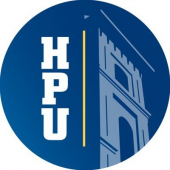
#66: Howard Payne University
Howard Payne University is a Christ-centered four-year institution offering 100 majors, minors, and pre-professional programs across seven schools. The School of Nursing leads a BSN program that is the fastest-growing area of interest for incoming students. This prelicensure program requires 124-125 credit hours across a combination of general education courses, foundational and advanced nursing coursework, on-campus clinical simulations, and off-campus clinical rotations. During the final year of the program, HPU nursing students complete a professional nursing capstone project and a comprehensive preparatory course on NCLEX-RN exam readiness. The BSN program is accredited by the Commission on Collegiate Nursing Education and approved by the Texas Board of Nursing.

#67: University of Texas Permian Basin
The University of Texas Permian Basin is the only university named after a geological formation. The College of Nursing offers a CCNE-accredited baccalaureate program with three pathways: traditional prelicensure, campus-based RN-to-BSN, and online RN-to-BSN. The prelicensure BSN is a four-year program of study. In the first two years, nursing students take science courses with other pre-health professionals including pre-medical, pre-dentistry, and pre-veterinary majors. Nursing courses are completed during the third and fourth years. Students gain clinical experience at regional healthcare facilities and in the school’s nursing simulation center. The prelicensure BSN track graduates approximately fifty students each year. UTPB’s campus-based RN-to-BSN program meets face-to-face one weekend per month, either on campus or in preapproved clinical settings. The remaining course activities are web-enhanced or conducted through Blackboard. UTPB’s online RN-to-BSN program is conducted entirely over the internet. This track offers multiple start dates and delivers courses in eight-week increments. Online students can complete the upper-division nursing courses in as little as eight months of study.
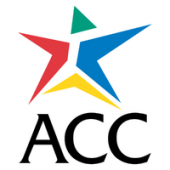
#68: Austin Community College
Austin Community College is a nationally recognized institution that serves 75,000 students annually. It is one of the largest colleges in the nation, conducting more than 100 programs of study across eleven campuses. The Health Sciences Area of Study offers several nursing pathways including a certificate in vocational nursing, an associate degree in professional nursing, and an RN-to-BSN completion pathway. The LVN program graduates between fifty and seventy students annually, while the ADN program graduates a large class of 200-250 students each year. Both programs have posted a stellar 94% pass rate on their respective NCLEX licensure examination over the past decade. Austin Community College’s RN-to-BSN program offers a number of flexible options, including either traditional or hybrid delivery and either fulltime or part-time attendance.

#69: San Jacinto College
San Jacinto College has twice earned recognition from the Aspen Institute as one of the top ten community colleges in the nation. The Health Sciences Area of Study conducts programs for aspiring nurses at all three of the college’s primary campuses. San Jac offers a traditional ADN curriculum at its Central and North campuses, while the South campus hosts the college’s ADN transition program for current LVNs and paramedics. Across these pathways, San Jacinto College typically graduates between 150 and 200 ADN students each year. These graduates have enjoyed an 87% first-time pass rate on the NCLEX-RN licensure exam over the past decade. The class of 2019 scored a 94% first-time pass rate. For aspiring vocational nurses, San Jac offers a 45-credit LVN certificate program at its North and South campuses. This program graduates 100-150 students annually, with a 91% first-time pass rate on the NCLEX-PN licensure exam over the past decade.
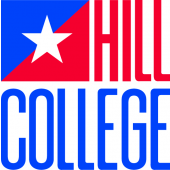
#70: Hill College
Hill College was the first public junior college in Texas. The college’s Nursing Department offers a one-year certificate of completion in vocational nursing, a traditional two-year associate degree in nursing, and an ADN transition option for existing LVNs and paramedics. Hill College nursing students receive hands-on training at two convenient campus locations in Hillsboro and Cleburne, with five potential areas of nursing specialization. The college partners with local community hospitals to provide clinical experiences across a range of healthcare settings. Graduates are well prepared for the required licensure examinations. Over the past decade, LVN graduates have achieved a phenomenal 97% NCLEX-PN pass rate. ADN graduates averaged an 80% NCLEX-RN pass rate over that time period. The ADN class of 2018 scored a perfect 100% (11 out of 11) NCLEX-RN pass rate.
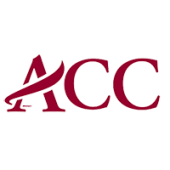
#71: Alvin Community College
Alvin Community College offers associate degrees and certificates through five academic divisions. The college’s nursing programs are conducted by the Division of Legal and Health Sciences. Nursing students can pursue a vocational nursing certificate or an associate of applied science degree with two entry points (generic prelicensure, LVN-to-ADN bridge). Students in all programs have an excellent track record on their nursing licensure examinations. Each of the past nine LVN graduating classes has scored a perfect pass rate on the NCLEX-PN licensure exam. Over the past decade, the ADN program has graduated 60-90 students annually with a 95% NCLEX-RN pass rate. ACC nursing students benefit from the college’s affiliation agreements with numerous local healthcare facilities including Clear Lake Regional Medical Center, Memorial Hermann Hospital Southeast, and Kindred Hospitals.

#72: Wharton County Junior College
Wharton County Junior College offers three prelicensure pathways in nursing: a vocational nursing certificate, a traditional associate degree in nursing, and an LVN-to-ADN transition track. All three pathways are conducted on the college’s flagship Wharton campus. The Sugar Land campus also accepts traditional ADN students for a spring semester start. WCJC has local clinical partners in a variety of healthcare settings including hospitals, clinics, nursing homes, and community-based agencies. The vocational nursing program typically graduates 20-30 students annually. Over the past decade, these LVN candidates have averaged an 83% pass rate on the NCLEX-PN licensure exam. The ADN programs collectively graduate 40-60 students each year, with an impressive 92% NCLEX-RN pass rate over the past decade.
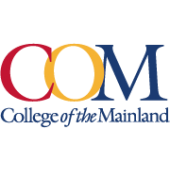
#73: College of the Mainland
College of the Mainland’s Nursing Department offers several education pathways. Aspiring vocational nurses can complete a 44-credit-hour certificate program. Each LVN cohort is small, with twenty to twenty-five students graduating annually. Over the past decade, these LVN candidates have scored an excellent 92% first-time pass rate on the NCLEX-PN licensure exam. Aspiring registered nurses have three options at COM: a fulltime prelicensure track, a part-time prelicensure track, and an LVN-to-RN transition track. The first two tracks are designed for students new to nursing, while the transition track provides LVNs with advanced placement. Across these three pathways, the college graduates 50-80 ADN students annually. Over the past decade, these graduates have averaged an 87% first-time pass rate on the NCLEX-RN licensure exam.

#74: College of Nursing and Advanced Health Professions at The Chicago School
The College of Nursing and Advanced Health Professions at The Chicago School provides several pathways into the nursing profession. The college offers a vocational nursing certificate and two ADN pathways (traditional and LVN bridge) at its campus in the Dallas metropolitan area, as well as an RN-to-BSN degree completion program conducted entirely online. The LVN certificate may be completed in 12 months fulltime or 17 months parttime. Over the past five years, LVN graduates have scored an excellent 97% first-time pass rate on the NCLEX-PN licensure exam. The traditional ADN program may be completed in as little as 18 months, and the LVN bridge pathway may be completed in as little as 12 months. Two out of the past four years, ADN graduates have scored a solid 91% first-time pass rate on the NCLEX-RN licensure exam. Finally, the 18-month RN-to-BSN program features a cutting-edge curriculum with courses like Ethical Issues and National & Global Health Policy.

#75: Del Mar College
The Nursing Education Department at Del Mar College offers a multiple entry / exit program (MEEP). Students may pursue a four-semester vocational nursing certificate or a five-semester professional nursing degree. Students in the RN program can obtain either the standard associate of applied science (AAS) degree or an associate of arts (AA) degree which will facilitate completion of a BSN degree at an upper-level program. The associate degree program also awards advanced standing to current LVNs. Del Mar College graduates 80-150 new RNs annually, and these students have scored an impressive 90% NCLEX-RN pass rate over the past decade. Those individuals who opt for the LVN certificate almost always pass the NCLEX-PN exam at a perfect 100% rate.
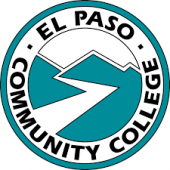
#76: El Paso Community College
El Paso Community College began classes in 1972, using buildings leased from the U.S. Army at Logan Heights on Fort Bliss. Within one year, the college’s enrollment had reached 5,000 students. Today the school serves more than 28,000 students annually. The Nursing Division offers a certificate of completion in vocational nursing as well as three pathways to an associate of applied science degree (generic, LVN-to-RN, paramedic-to-RN). Each nursing student at EPCC is assigned a specific faculty member as a mentor. Graduates routinely enjoy high pass rates on their licensure examinations. For example, AAS students have averaged an 89% NCLEX-RN pass rate over the past decade. The AAS graduating class of 2018 scored a phenomenal 98% NCLEX-RN pass rate. LVN students have performed similarly well, with a 91% NCLEX-PN pass rate over the past decade and a stellar 98% NCLEX-PN pass rate in 2018.
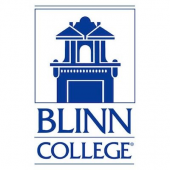
#77: Blinn College
Blinn College has articulation agreements with the Texas A&M University System, which ensures a seamless transfer experience to a four-year institution to earn a bachelor’s degree. The college offers CNA, LVN, and ADN pathways that provide hands-on skills training, experience in a state-of-the-art simulation laboratory, and clinical rotations at area hospitals. The 120-hour CNA program prepares students to pass the Texas Department of Aging and Disability Services Exam, which certifies them for employment as a nurse aide. The LVN and ADN programs prepare students to sit for the NCLEX-PN and NCLEX-RN exams, respectively. Over the past decade, Blinn College’s LVN graduates have achieved an outstanding 96% first-time NCLEX-PN pass rate, while its ADN graduates have scored an impressive 93% first-time NCLEX-RN pass rate.

#78: Midland College
Midland College offers three programs for aspiring nurses: an LVN certificate, a traditional ADN program, and an LVN-to-RN bridge. The LVN certificate is a 12-month program that prepares graduates to take the NCLEX-PN licensure exam. Over the past decade, Midland’s LVN students have posted a stellar 92% NCLEX-PN pass rate. The traditional ADN program is a full-time, four-semester curriculum that prepares graduates to take the NCLEX-RN licensure exam. The LVN-to-RN track does likewise over an accelerated three-semester curriculum that provides LVNs advanced standing for their previous coursework. Over the past decade, Midland’s ADN students have achieved a solid 85% NCLEX-RN pass rate.
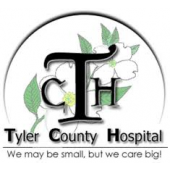
#79: Tyler County Hospital School of Vocational Nursing
Tyler County Hospital School of Vocational Nursing offers a 12-month LVN program that progresses through several curricular levels. The first 16 weeks focus on classroom lectures and demonstrations, with a few hours of clinical experience. The remaining 36 weeks of the program increasingly shift the focus to clinical experience, supplemented with fewer classroom hours. The program begins in January of each year and accepts a maximum of 72 students per cohort, including at least 15 Tyler County residents. Over the past decade, graduates have achieved an impressive 88% first-time pass rate on the NCLEX-PN licensure exam.

#80: Lone Star College
Lone Star College is the largest institution of higher learning in the state of Texas. The student body far exceeds 80,000 individuals, and the school boasts the largest Hispanic student population in the nation. The college offers a robust nursing program at five campuses spanning the northern portions of the Greater Houston metropolitan area. Students may pursue a one-year licensed vocational nursing (LVN) certificate or a two-year associate of applied science (AAS) degree at LSC’s CyFair, Kingwood, Montgomery, North Harris, and Tomball campuses. The Montgomery campus also offers a three-semester RN-to-BSN completion program. Graduates of both the AAS and LVN programs have performed exceptionally well on the National Council Licensure Examination. For example, across the five campuses, AAS students have collectively averaged a first-time NCLEX-RN pass rate of 95% over the past four years. During that same timeframe, the LVN program’s first-time NCLEX-PN pass rate averaged a stellar 98%.
